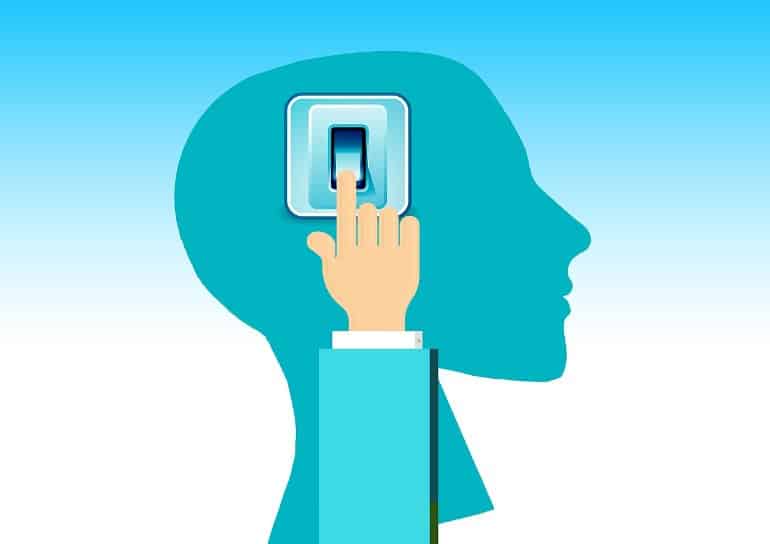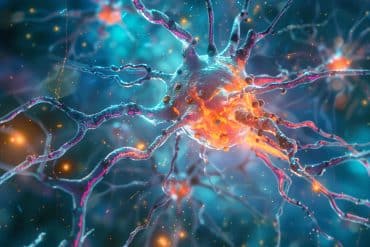Summary: Gene editing could be a potential new treatment for anxiety and alcohol use disorder in adults who indulged in binge drinking as adolescence.
Source: University of Illinois
Gene editing may be a potential treatment for anxiety and alcohol use disorder in adults who were exposed to binge drinking in their adolescence, according to the results of an animal study published in the journal Science Advances.
The study is issued by researchers from the University of Illinois Chicago, who have been studying the effects of early life binge drinking on health later in life.
In prior research, the UIC team found that binge drinking in adolescence alters brain chemistry at the enhancer region of the Arc gene—for activity-regulated cytoskeleton-associated protein immediate-early gene—and decreases Arc expression in the amygdala of both rodents and humans.
This epigenetic reprogramming of the Arc gene in the brain’s emotion and memory center contributes to a predisposition to anxiety and alcohol use disorder in adulthood.
In the new study, the researchers show that this epigenetic reprogramming, which persists throughout life, actually can be reversed with gene editing.
“Early binge drinking can have long-lasting and significant effects on the brain, and the results of this study offer evidence that gene editing is a potential antidote to these effects, offering a kind of factory reset for the brain, if you will,” said study senior author Subhash Pandey, the Joseph A. Flaherty Endowed Professor of Psychiatry and director of the Center for Alcohol Research in Epigenetics at UIC.
Pandey and his team used a gene-editing tool called CRISPR-dCas9 in their experiments to manipulate the histone acetylation and methylation processes at the Arc gene in models of adult rats. These processes make genes more or less accessible for activation.
First, the researchers studied adult rats with intermittent alcohol exposure in their adolescence, corresponding to about age 10 to 18 in human years. They observed that when dCas9 was used to promote acetylation, a process that loosens chromatin and allows transcription factors to bind to the DNA, Arc gene expression normalized. Additionally, indicators of anxiety and alcohol consumption decreased.
Anxiety was measured through behavioral testing, such as by documenting the exploratory activity of rats placed in maze tests, and preference for alcohol was measured by monitoring the amount of liquid consumed when the rats were presented with a choice of two bottles consisting of options such as tap water, sugar water and varying concentrations of alcohol (3%, 7% and 9%).

In a second model, the researchers studied adult rats without early alcohol exposure. When inhibitory dCas9 was used to promote methylation, which tightens chromatin and prevents transcription factors from binding to DNA, Arc expression decreased and indicators of anxiety and alcohol consumption increased.
“These results demonstrate that epigenomic editing in the amygdala can ameliorate adult psychopathology after adolescent alcohol exposure,” the authors report.
“Adolescent binge drinking is a serious public health issue, and this study not only helps us better understand what happens in developing brains when they are exposed to high concentrations of alcohol, but more importantly gives us hope that one day we will have effective treatments for the complex and multifaceted diseases of anxiety and alcohol use disorder,” said Pandey, who is also a senior research career scientist at Jesse Brown VA Medical Center.
“That this effect was seen bidirectionally validates the significance of the Arc enhancer gene in the amygdala in epigenetic reprogramming from adolescent binge drinking.”
Co-authors of the study, “Targeted epigenomic editing ameliorates adult anxiety and excessive drinking after adolescent alcohol exposure,” are John Peyton Bohnsack, Huaibo Zhang, Gabriela Wandling, Donghong He, Evan Kyzar and Amy Lasek, all of UIC.
About this gene editing and anxiety research news
Author: Press Office
Source: University of Illinois
Contact: Press Office – University of Illinois
Image: The image is in the public domain
Original Research: Open access.
“Targeted epigenomic editing ameliorates adult anxiety and excessive drinking after adolescent alcohol exposure” by John Peyton W. Bohnsack et al. Science Advances
Abstract
Targeted epigenomic editing ameliorates adult anxiety and excessive drinking after adolescent alcohol exposure
Adolescent binge drinking is a major risk factor for psychiatric disorders later in life including alcohol use disorder.
Adolescent alcohol exposure induces epigenetic reprogramming at the enhancer region of the activity-regulated cytoskeleton-associated protein (Arc) immediate-early gene, known as synaptic activity response element (SARE), and decreases Arc expression in the amygdala of both rodents and humans. The causal role of amygdalar epigenomic regulation at Arc SARE in adult anxiety and drinking after adolescent alcohol exposure is unknown.
Here, we show that dCas9-P300 increases histone acetylation at the Arc SARE and normalizes deficits in Arc expression, leading to attenuation of adult anxiety and excessive alcohol drinking in a rat model of adolescent alcohol exposure. Conversely, dCas9-KRAB increases repressive histone methylation at the Arc SARE, decreases Arc expression, and produces anxiety and alcohol drinking in control rats.
These results demonstrate that epigenomic editing in the amygdala can ameliorate adult psychopathology after adolescent alcohol exposure.







